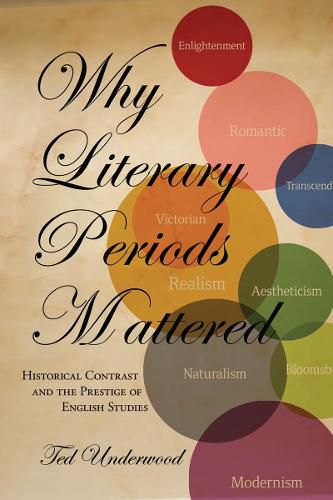Readings Newsletter
Become a Readings Member to make your shopping experience even easier.
Sign in or sign up for free!
You’re not far away from qualifying for FREE standard shipping within Australia
You’ve qualified for FREE standard shipping within Australia
The cart is loading…






In the mid-nineteenth century, the study of English literature began to be divided into courses that surveyed discrete periods. Since that time, scholars’ definitions of literature and their rationales for teaching it have changed radically. But the periodized structure of the curriculum has remained oddly unshaken, as if the exercise of contrasting one literary period with another has an importance that transcends the content of any individual course.
Why Literary Periods Mattered explains how historical contrast became central to literary study, and why it remained institutionally central in spite of critical controversy about literature itself. Organizing literary history around contrast rather than causal continuity helped literature departments separate themselves from departments of history. But critics’ long reliance on a rhetoric of contrasted movements and fateful turns has produced important blind spots in the discipline. In the twenty-first century, Underwood argues, literary study may need digital technology in particular to develop new methods of reasoning about gradual, continuous change.
$9.00 standard shipping within Australia
FREE standard shipping within Australia for orders over $100.00
Express & International shipping calculated at checkout
In the mid-nineteenth century, the study of English literature began to be divided into courses that surveyed discrete periods. Since that time, scholars’ definitions of literature and their rationales for teaching it have changed radically. But the periodized structure of the curriculum has remained oddly unshaken, as if the exercise of contrasting one literary period with another has an importance that transcends the content of any individual course.
Why Literary Periods Mattered explains how historical contrast became central to literary study, and why it remained institutionally central in spite of critical controversy about literature itself. Organizing literary history around contrast rather than causal continuity helped literature departments separate themselves from departments of history. But critics’ long reliance on a rhetoric of contrasted movements and fateful turns has produced important blind spots in the discipline. In the twenty-first century, Underwood argues, literary study may need digital technology in particular to develop new methods of reasoning about gradual, continuous change.